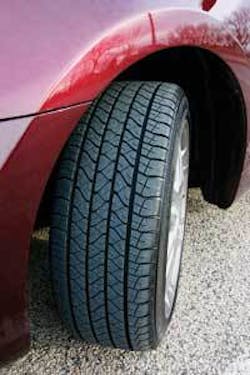Kicking the tires!
Before purchasing a car, most people take it for a test drive. They also do research on the Internet to find out about the vehicle’s safety record and repair frequency. Customers want to “kick the tires” before they buy. Dental practices cost more than most cars.
Investigating a dental practice before purchase requires a lot more time than investigating a car. Buyers are obligated by lenders and the terms of the purchase contract to review patient charts, examine the accounts receivable, and confirm that all equipment is in working order. Unless the buyer has worked in the practice, gathering this information requires a lot of time and effort.
A practice sale also requires a lot of time from the seller. When someone hires a realtor to sell a house, the realtor agrees to advertise the house, facilitate the sale, and obtain financing. The seller must clean the house before showings, mow the lawn, and make the necessary repairs. If there are known problems with the house, the seller is obligated to list problems or correct them.
What brokers do
A lot of similarities exist between selling a home and selling a dental practice. The selling dentist should hire a broker to determine the value of the practice, advertise it, and locate buyers.
Brokers also assist the buyer and seller with financing. Just as in selling a home, the dentist selling his or her practice needs to make a time commitment. The seller must gather data for the appraisal and confirm that the information is accurate. It is not the broker’s job to determine the truthfulness of the seller’s financial statistics. Giving incorrect or inaccurate information to the broker can result in a lawsuit, and the ultimate loser will be the seller.
The selling dentist is obligated to show his or her practice to prospective buyers ... and there may be a parade of potential buyers. Numerous interested buyers increase the potential for the practice sale and also increase the time required by the seller to answer questions and give access to the practice. The seller will be required to answer all questions pertaining to the dental practice, including practice management, scheduling, and financial aspects of the daily operation.
The seller should never discuss the valuation, financing, or price of the practice with a potential buyer. The broker will answer questions about practice value, financing, cash flow, and the price of the practice.
Meeting the staff
It is important that potential buyers meet the staff. If the staff is in the dark about the potential sale, it may make meeting the staff difficult. If the seller of the practice feels the need to keep the staff uninformed about the pending sale, then the buyer might be introduced as a potential associate or a dentist who is opening a practice elsewhere.
Another solution to meeting the staff is to have the potential buyer have his or her teeth cleaned by the hygienist. As a “new patient,” the buyer would meet all the staff members and be able to see how they greet and work with patients. A buyer who has already examined the practice, charts, and equipment after hours will thus see the practice “in action.”
Brokers are necessary for practice valuation, advertising, finding a buyer, financing, structuring the sale, and creating a smooth transition. However, the seller must provide the keys and open the garage for each potential buyer ... and the buyer still must “kick the tires.”Gretchen O. Lovelace, MS, CFP®, CPM, is president of Lovelace and Associates, Inc., a dental practice transitioning, consulting, and brokerage firm in Baton Rouge, La. She is a member of American Dental Sales, the Institute of Business Appraisers, and the Financial Planning Association. Gretchen can be reached at (225) 892-5135 or by e-mail at [email protected].

